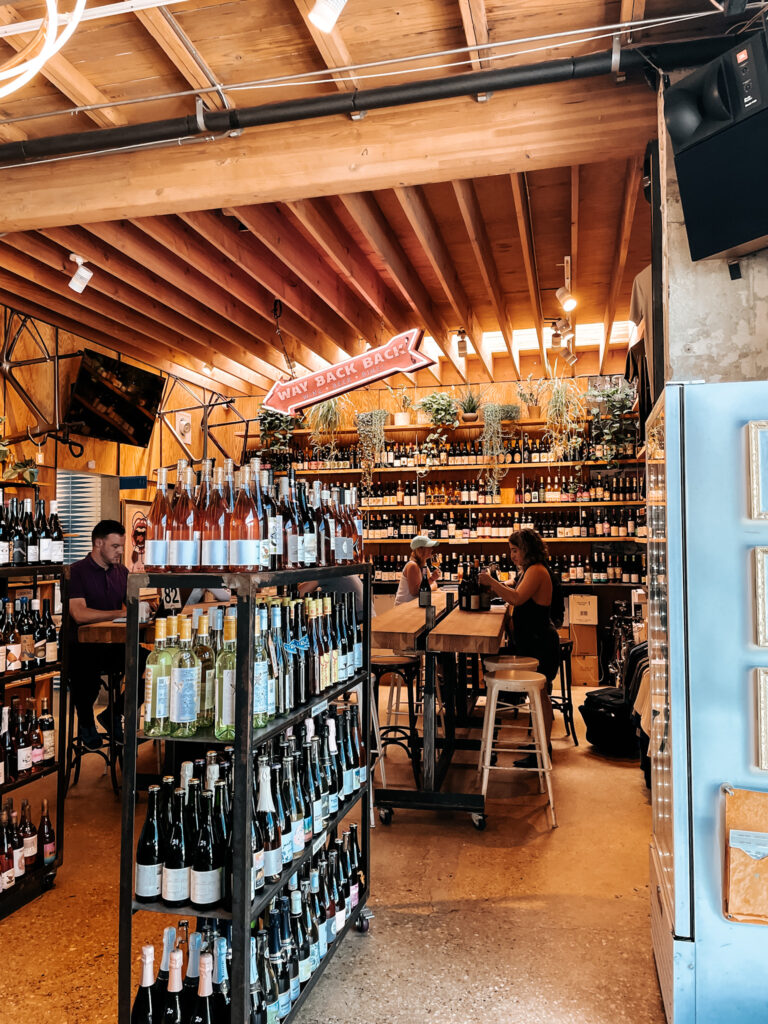Wine has been an integral part of human culture for centuries, offering a taste of tradition, craftsmanship, and the terroir of regions around the world. Recently, natural wine has emerged as a popular trend, capturing the interest of wine enthusiasts and health-conscious consumers alike. But what exactly is natural wine, and why is it gaining so much attention? Let’s dive into the world of natural wines to understand their unique appeal.
What is Natural Wine?
Natural wine is produced with minimal intervention, both in the vineyard and the winery. This means that the grapes are typically grown using organic or biodynamic farming practices, which avoid synthetic pesticides and fertilizers. During the winemaking process, natural wines undergo fermentation with native yeasts, and winemakers add little to no additives. The result is a wine that reflects its natural environment and the artistry of the winemaker.
Key characteristics of natural wines include their often distinctive and diverse flavor profiles, which can vary significantly from one bottle to another. This variability is a testament to the unique conditions and minimal interference in the winemaking process, setting natural wines apart from their conventional counterparts.
Common Misconceptions About Natural Wines
Despite their growing popularity, natural wines are surrounded by several misconceptions that can deter potential enthusiasts. Let’s address some of the most common myths:
Misconception 1: They are always cloudy and funky.
While some natural wines can have a cloudy appearance or unusual flavors, not all natural wines fall into this category. Many are clear and exhibit familiar wine characteristics, though they often offer a more vibrant and expressive taste.
Misconception 2: They lack consistency and quality.
Natural wine does exhibit variability, but this is not synonymous with poor quality. Instead, it reflects the individuality of each vineyard and vintage. Many natural wines are highly acclaimed for their exceptional quality and unique character.
Misconception 3: It’s just a fad.
Natural wine is not a new phenomenon but a revival of traditional winemaking practices that date back centuries. Its resurgence is part of a broader movement towards sustainable and authentic food and drink.
Why Natural Wine is Better for You
There are several compelling reasons to consider natural wine as a healthier and more environmentally friendly choice:
Health Benefits of Natural Wine
- Fewer chemicals and additives: Natural wines are made with minimal additives, reducing your exposure to potentially harmful chemicals.
- Potentially lower sulfite levels: While sulfites are a natural byproduct of fermentation, natural wines often contain lower levels, which can be beneficial for those sensitive to sulfites.
- Use of organic and biodynamic grapes: These farming practices avoid synthetic chemicals, resulting in grapes that are grown in harmony with nature.
Environmental Benefits of Natural Winemakers
- Sustainable farming practices: Natural winemakers prioritize environmentally friendly practices that promote soil health and biodiversity.
- Lower carbon footprint: By reducing reliance on synthetic inputs and heavy machinery, natural winemaking can have a smaller environmental impact.
- Support for biodiversity: Organic and biodynamic vineyards often support a wider range of plant and animal life, contributing to a healthier ecosystem.
Taste and Experience
- Unique and diverse flavor profiles: Natural wines offer a wide range of flavors that can be more expressive and reflective of their terroir.
- Connection to terroir and winemaking tradition: Natural wines provide a deeper connection to the land and the traditional methods used to produce them, offering a richer tasting experience.

Where to Find Natural Wine in Austin
If you’re in Austin and looking to explore natural wines, you’re in luck. The city boasts a vibrant scene of wine bars and restaurants that celebrate this style of winemaking. Here are some top spots to check out:
- Lolo Wine Bar: A cozy spot with a bamboo-filled outdoor courtyard in East Austin.
- Aviary Wine & Kitchen: Combining a love for food and wine, Aviary offers an impressive list of natural wines.
- Flo’s Wine Bar: A welcoming neighborhood bar with a focus on natural and organic wines from around the world.
- Birdie’s: Known for its exceptional food and wine pairings and a trendy East Austin restaurant with elevated counter service.
- June’s All Day: This chic spot offers a variety of natural wines alongside delicious bites.
- Rosie’s Wine Bar: A laid-back venue with a great selection.
- Underdog: A trendy spot that champions lesser-known wine producers from around the world.
- Hopscotch: A fun and interactive bar on South Lamar that includes natural wines in its lineup.
- The Meteor: A café, bike shop, and wine bar all in one, with a strong emphasis on natural wines.
- Neighborhood Vintner: A boutique wine shop with a knowledgeable staff to guide you through their natural wine selection.
- Apt 115: An intimate wine bar known for its eclectic and carefully curated wine list.

Experience Natural Wines with SNOOTI
At SNOOTI, we are passionate about making wine exploration fun and accessible. Our luxury wine tasting experiences in the Austin area include a curated selection of natural wines, allowing you to discover the unique flavors and stories behind each bottle. Whether you’re a seasoned wine enthusiast or new to the world of natural wines, our events promise an unforgettable journey into the art and science of winemaking.
Conclusion
Natural wine offers a unique and compelling alternative to conventional wines, with benefits for your health, the environment, and your palate. As you explore the world of natural wines in Austin, you’ll discover a diverse array of flavors and stories that enrich your appreciation for this age-old beverage. And remember, for a truly enlightening wine experience, SNOOTI is here to guide you through the vibrant world of natural wines. Cheers!
Comments +